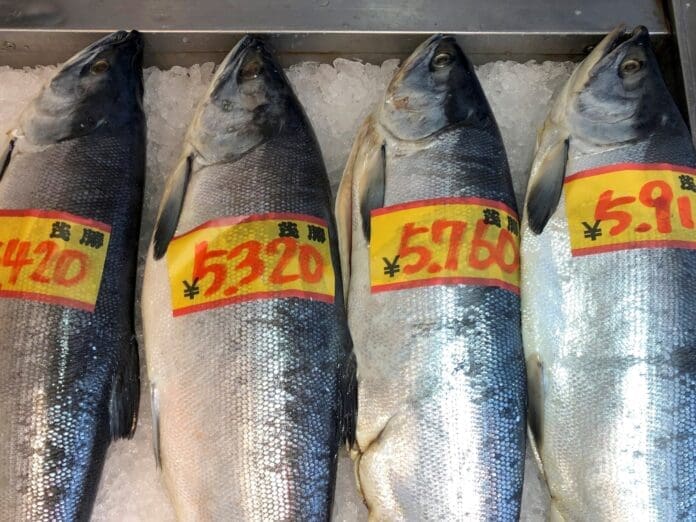Following the full-scale invasion of Ukraine by Russia, the response from the West was immediate and decisive. The European Union and the United States unanimously agreed to support Ukraine and impose economic sanctions on Russia.
Despite ongoing warfare, Russia’s economy has displayed resilience, with some key industries avoiding sanctions. The fishing industry in Russia, for example, faced only partial restrictions from the US and the EU, allowing about $1 billion worth of seafood to be imported from Russia.
While the EU has implemented multiple sanction packages targeting various Russian entities since the invasion began in 2022, many food products were excluded from these sanctions, including seafood. As a result, Russian seafood such as Alaskan pollock and cod continued to flood European and American markets.
Efforts to prevent Russian seafood from entering these markets have been challenging, as the origins of seafood are not always easily traceable. Despite bans on Russian seafood in the US, loopholes exist, allowing Russian fish to be processed in third countries before reaching Western markets.
This practice, dubbed “fish laundering,” has raised concerns about consumers inadvertently supporting the Russian economy through their seafood purchases. Efforts to monitor and regulate seafood imports have proven insufficient, leaving room for illegally-harvested fish to enter markets.
In response to these challenges, the EU recently imposed increased tariffs on Russian fish, prompting concerns about potential price hikes for consumers. Despite these measures, some argue that more stringent sanctions are necessary to address the continued conflict in Ukraine.
As the war in Ukraine persists, Ukrainian citizens like Zagrebelska continue to advocate for stricter sanctions on Russia. The struggle for freedom and basic rights remains a fundamental concern in Ukraine, highlighting the ongoing impact of the conflict on the region.
This article was produced in collaboration with Aktuálně.cz and Kringvarp Føroya in the Faroe Islands, supported by Journalismfund Europe.
